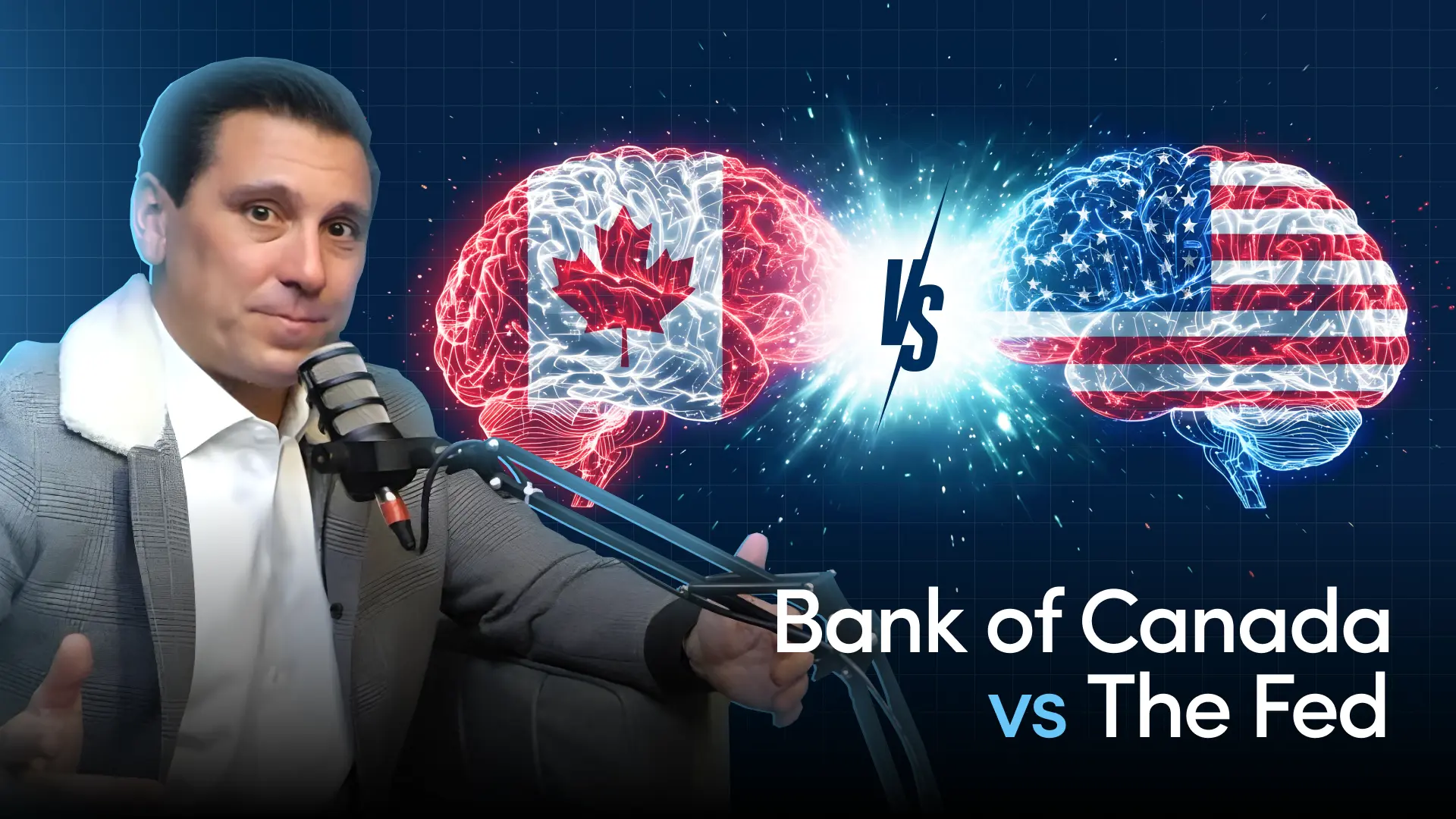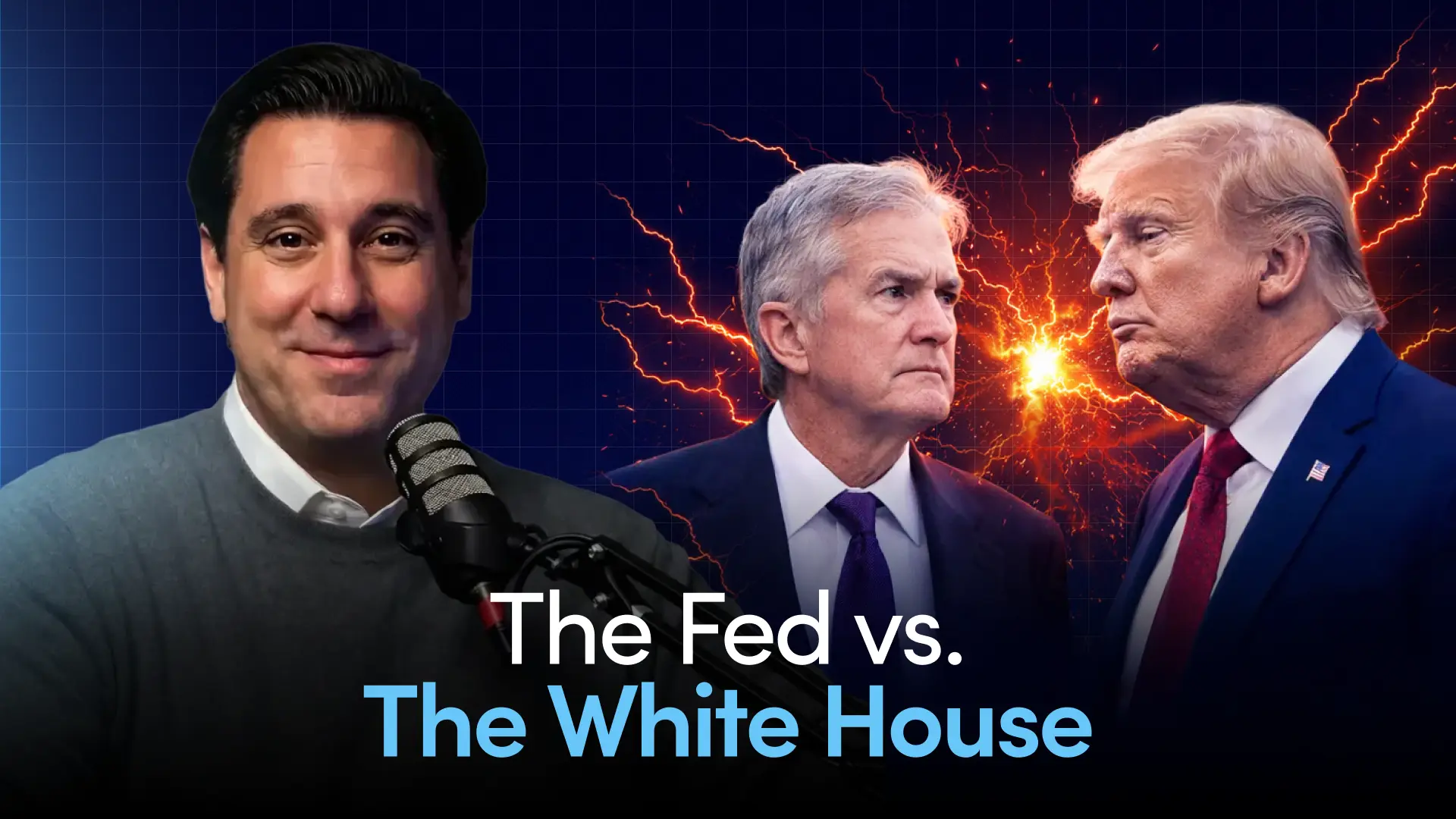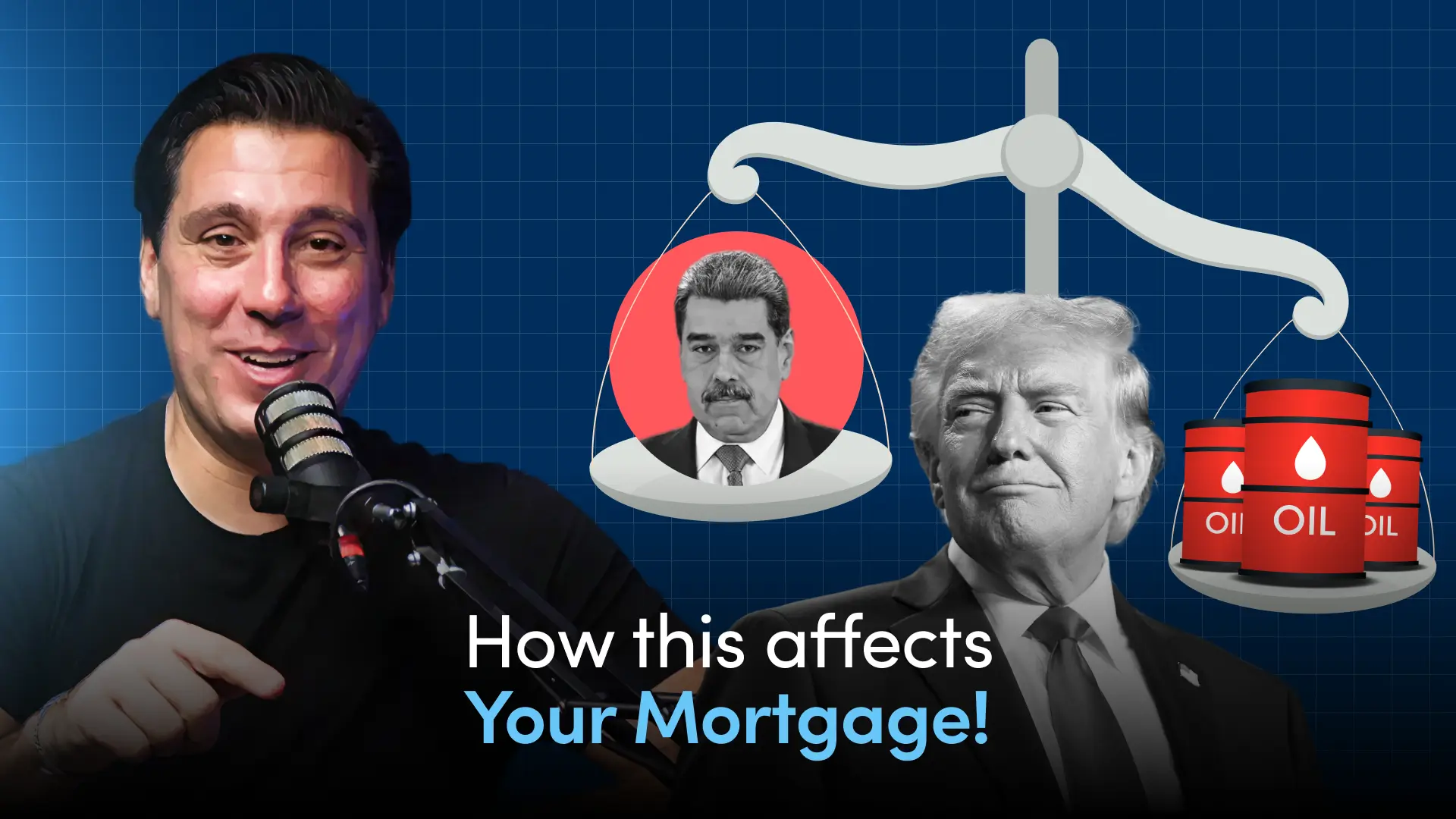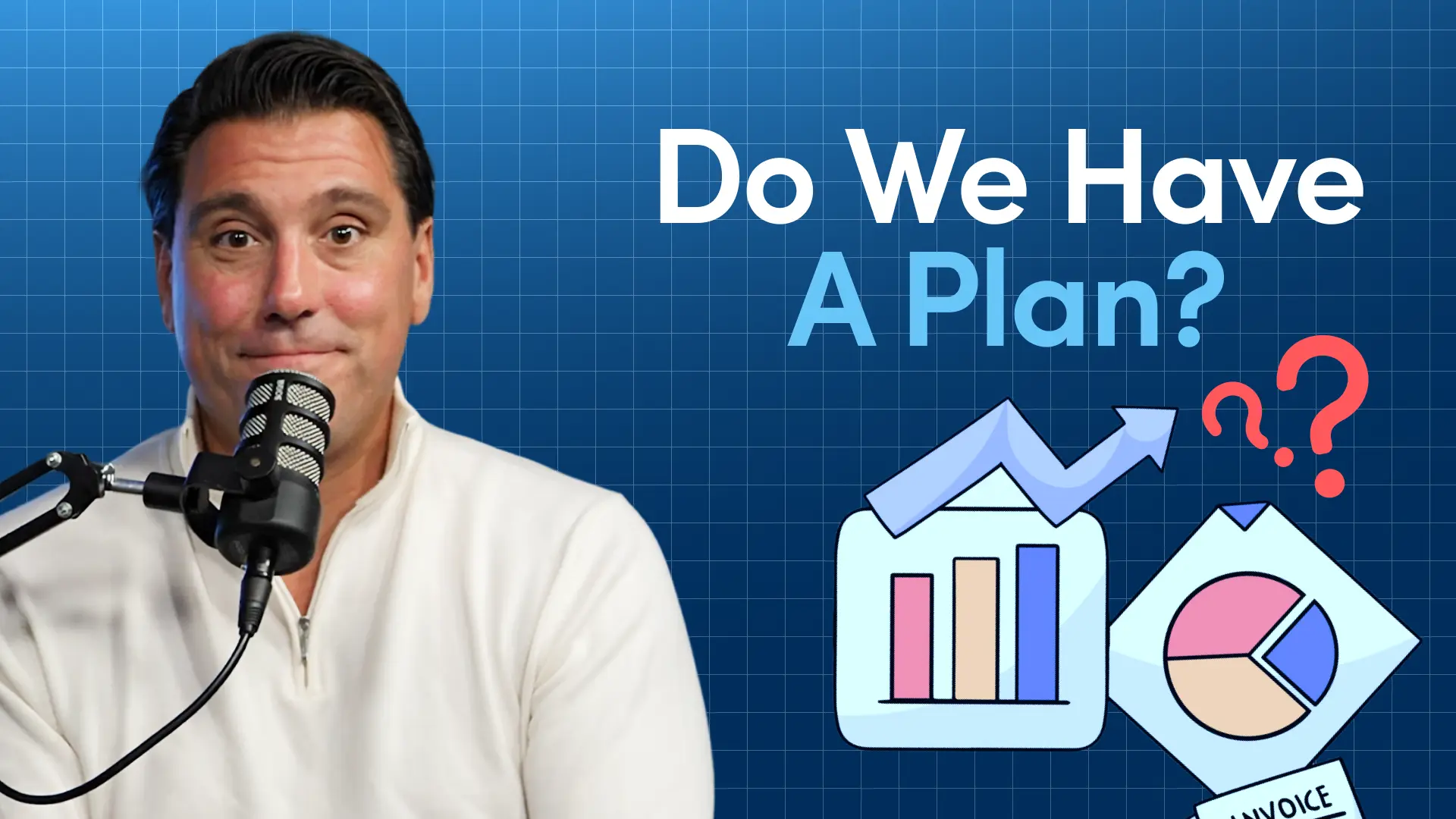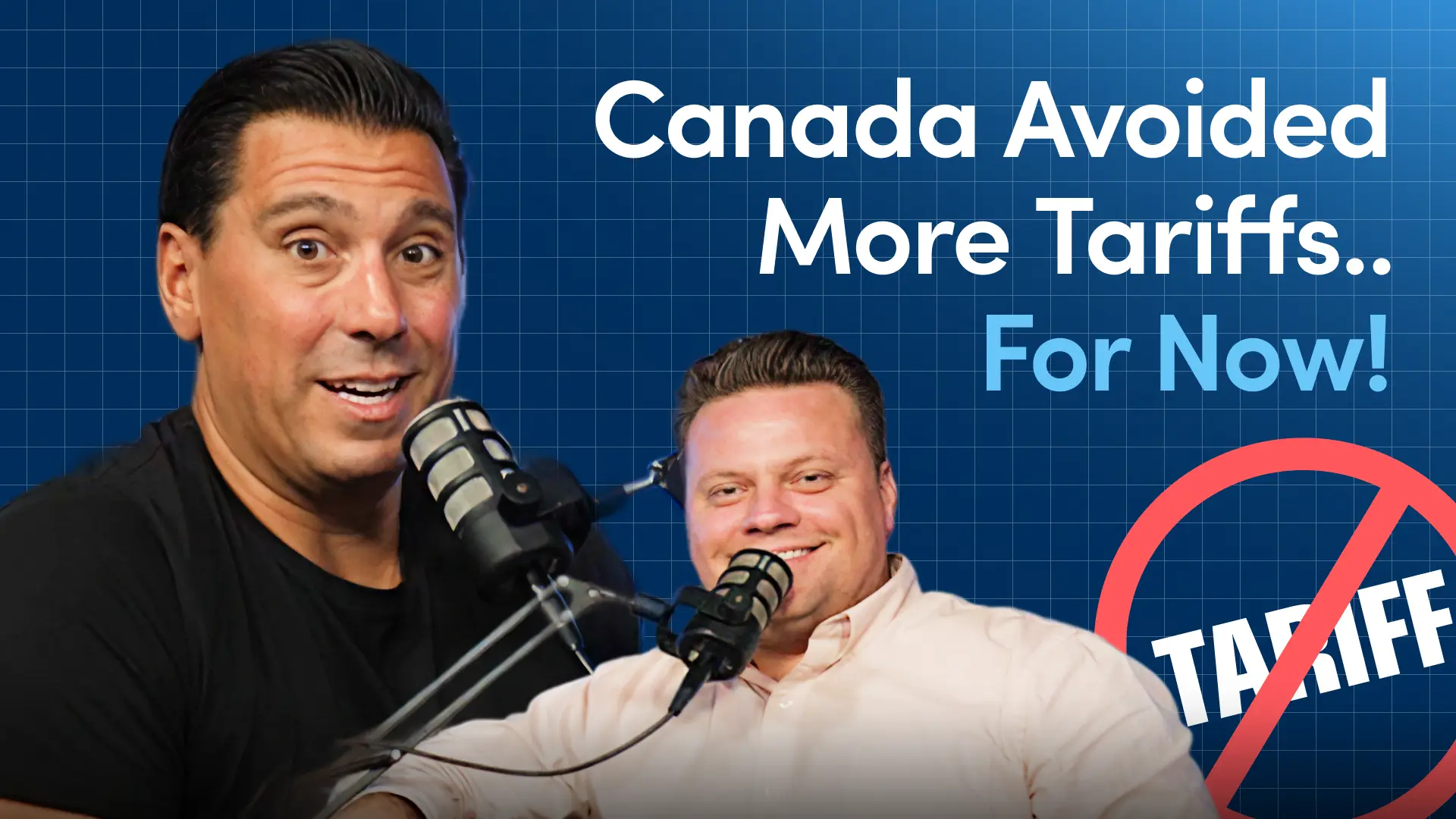When Donald Trump and Bank of Canada’s Mark Carney met this week, everyone expected fireworks. Instead… nothing happened. No fresh tariff threats, no trade deal announcement — just smiles, polite nods, and what negotiation veterans call a “grin negotiation” moment.
But in today’s fragile Canadian economy, “nothing happened” actually counts as a win.
While political headlines focused on the optics, something far more important was happening in the background — bond yields continued to fall, and that has major implications for Canadian homeowners, especially those locked into high fixed-rate mortgages.
Episode Highlights
The Meeting: Optics Over Outcomes
Let’s be clear — this wasn’t a trade breakthrough. This was Carney showing up, smiling, and doing what Canadian officials now must do: appease the U.S. administration to avoid further economic damage.
- Canada avoided new tariffs.
- Existing trade tension under CUSMA remains unresolved.
- No clarity on future industrial investment protection.
- No movement on removing the current punitive trade barriers.
In short, we didn’t gain anything — we just didn’t lose more.
Canada’s Position: Playing Defense
Trump said it clearly during the meeting: “We’re friends and allies, but we are in direct competition.”
Here’s the uncomfortable truth:
- If there’s only one auto plant, and it can be located in either the U.S. or Canada, America will fight harder for it.
- The buyers are in the U.S. — meaning they control tariff pressure.
- Canada doesn’t have another sector ready to carry the economy (housing slowdown, construction cooling, investment hesitation).
With housing prices slipping and construction activity drying up, there isn’t much left to prop up GDP. And foreign investors don’t like uncertainty — which means Canadian confidence is quietly eroding, even if no one wants to say it out loud.
Bond Yields Are Dropping — Quietly
While the media covered handshakes and headlines, bond yields continued to slide, signaling market expectations of lower interest rates ahead.
And here’s where it gets interesting:
A senior Bank of Canada official, Deputy Governor Royce Mendes, suggested that mortgage interest costs should be excluded from CPI calculations — a measure that no other major economy currently includes.
Why does that matter?
Right now:
- Higher rates = higher mortgage payments = CPI reads higher
- Which means the Bank of Canada ends up chasing inflated inflation caused by its own rate hikes
If mortgage interest is stripped out:
- Inflation readings drop
- The Bank of Canada has more room to cut rates sooner
Translation for homeowners: Rate cuts may happen faster than expected — but fixed-rate mortgage penalties will rise just as fast.
Fixed vs Variable: Timing is Everything
If you’re sitting in a fixed mortgage at a high rate, you have a decision to make — and waiting may cost you more than acting now.
Here’s what’s happening:
| Bond yields dropping | Variable rates expected to trend down |
| Discounts on variable shrinking | You’ll get fewer savings the longer you wait |
| Penalties to break fixed mortgages rising as yields fall | Your cost to switch keeps increasing |
| BoC hinting at CPI adjustments | Policy may shift faster than most Canadians expect |
The longer it goes, the further bond yields drop — the higher your penalty goes.
Most homeowners wait for an official BoC announcement before taking action. But by the time rates officially drop, lenders will have already priced in those expectations — leaving very little advantage for those who wait.
What Homeowners Should Do Right Now
If your mortgage rate starts with a 5, running the numbers now might reveal savings you’re not expecting. Here’s a smart move:
- Check your current fixed-rate penalty — it’s probably growing quietly.
- Run a refinance/switch scenario using today’s bond yield pricing — don’t assume your lender will tell you when it’s optimal.
- Model a variable-rate projection for the next 24 months — before discounts tighten further.
You might discover that breaking early, even with a penalty, puts you ahead — especially if rate cuts accelerate, as bond markets and Mendes’ comments suggest.
Final Thought: Don’t Wait for “Perfect Timing” — It Doesn’t Exist
Economic policy changes don’t happen with a big announcement. They creep in, get priced in quietly, and by the time the average homeowner reacts, most of the savings opportunity is gone.
If you’re waiting for a press conference to tell you it’s time to move, you’re already late.
Cannect Takeaway: Let’s Run Your Numbers Before the Market Does It For You
If you’re in a fixed mortgage and watching bond yields drop, now is your moment. Even if you’re unsure whether it makes sense to break early, a clear calculation will tell you in minutes.
Let Cannect run your penalty vs savings analysis. No guessing, no “hoping,” just numbers — and a strategy that puts you ahead instead of reacting after the fact.
Watch our Make Money Count videos to gain more insights.







